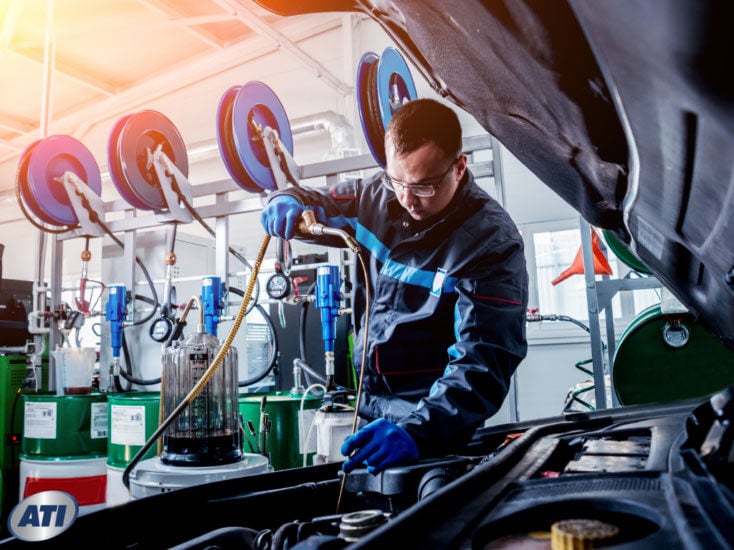Training as a Mechanic: What You Need to Know About Formal Education

Automobiles have evolved and advanced considerably over the past 30 years. While knowing how to wield a wrench is still a vital skill for mechanics, much more is needed to keep today’s modern machines operational.
With advancements happening at a rapidly increasing rate, 21st century mechanics are entering a career field where the ability to learn and adapt quickly are skills that are as valuable as knowing the difference between when to use 10W-40 or 5W-30.
Career Fundamentals
Mechanics must master the machines they work on, and automotive training programs should teach you how to diagnose and repair everything from the brakes and the transmissions, to the engines and the axles. Courses generally cover basic engine repair, vehicle electronics, steering/alignment, brake systems, drivetrains and axles, transmissions and HVAC systems.
In addition to technical skills, training usually includes accounting, computer programs, speaking, technical writing, and industrial psychology. When you complete the program, you will have the skills required to enter the field and start work immediately.
Hands on Training
Learning how to repair machinery requires more than reading books and listening to lectures. While these are critical components of any educational program, what’s more important to your future is your ability to get your hands on the machines you can expect to work on when you graduate.
Look for a program that gives you plenty of hands on experience so that you get a genuine feel for the machines and what works, what doesn’t, and what frequently goes wrong. A training that is designed to help you master the intricate details and complex systems within modern automobiles. From the engine block and the transmission, to the computers and the comfort systems, you could learn how to quickly identify problems and conduct the repairs your clients require.
Mastering Communication is Critical
Strong communication skills are critical as an automotive technician. You must know how to communicate with co-workers, place orders with suppliers, negotiate deals with distributors, and of course, communicate necessary repairs with clients. This requires mastering the art of a diverse set of communication skills. It requires learning how to use language and lingo so that the other person has a clear picture of problems and solutions.
Inventory Management
Machines don’t run without the parts you need to replace. Learning how to maintain the right amount of inventory is an art that takes practice and experience. Automotive training programs can help you understand what parts you will need to have on hand, what parts you should have quick access to, and which parts you will rarely need.
Upon graduation, this training should help you develop stocking and inventory plans tailored for your shop. In turn, this helps you maintain positive cash flow without tying unnecessary funds up in inventory that collects dust. It also ensures that when your clients come in for repairs, you don’t have to wait around for parts to arrive before you can get the job done.
Continuing Education
Automotive technology is a constantly evolving field and changes are happening faster and faster. This means that graduates who land careers as automotive service technicians and mechanics must learn how to become perpetual students. This requires learning how to adapt to changing technologies and adopt evolving repair techniques. Mastering these skills will help you stay ahead of the competition and sharpen your skills so that what you know today remains relevant tomorrow.
To that end, many graduates choose to pursue certification through the National Institute for Automotive Service Excellence (ASE) after graduation. ASE offers eight different certifications that you can pursue to become qualified as an auto repair specialist. Upon completion of all eight, you will become an ASE certified Master Automobile Technician. With this certification, the sky could be the limit for your career aspirations.
Are You Ready to Get Started?
Ready to pursue a career as an auto service technician or mechanic? Contact Advanced Technology Institute for more information about the Associate of Occupational Science Degree in Automotive Technology with Service Management we offer. Don’t miss out on your chance to start a new career!

Industry Knowledge
Welcome to the Advanced Technology Institute's Blog, your resource for industry insights and discussions on technologies shaping the future of automotive, heavy vehicle, hvac, welding, and other related career paths.
Explore how ATI's curriculum and hands-on learning opportunities can propel your career in the tech-driven world.


.jpg)